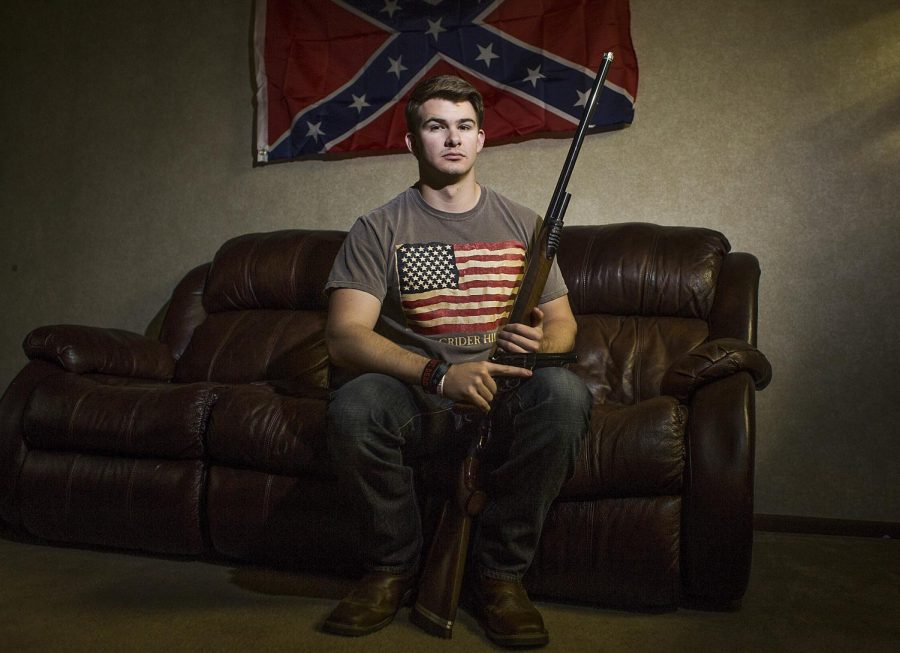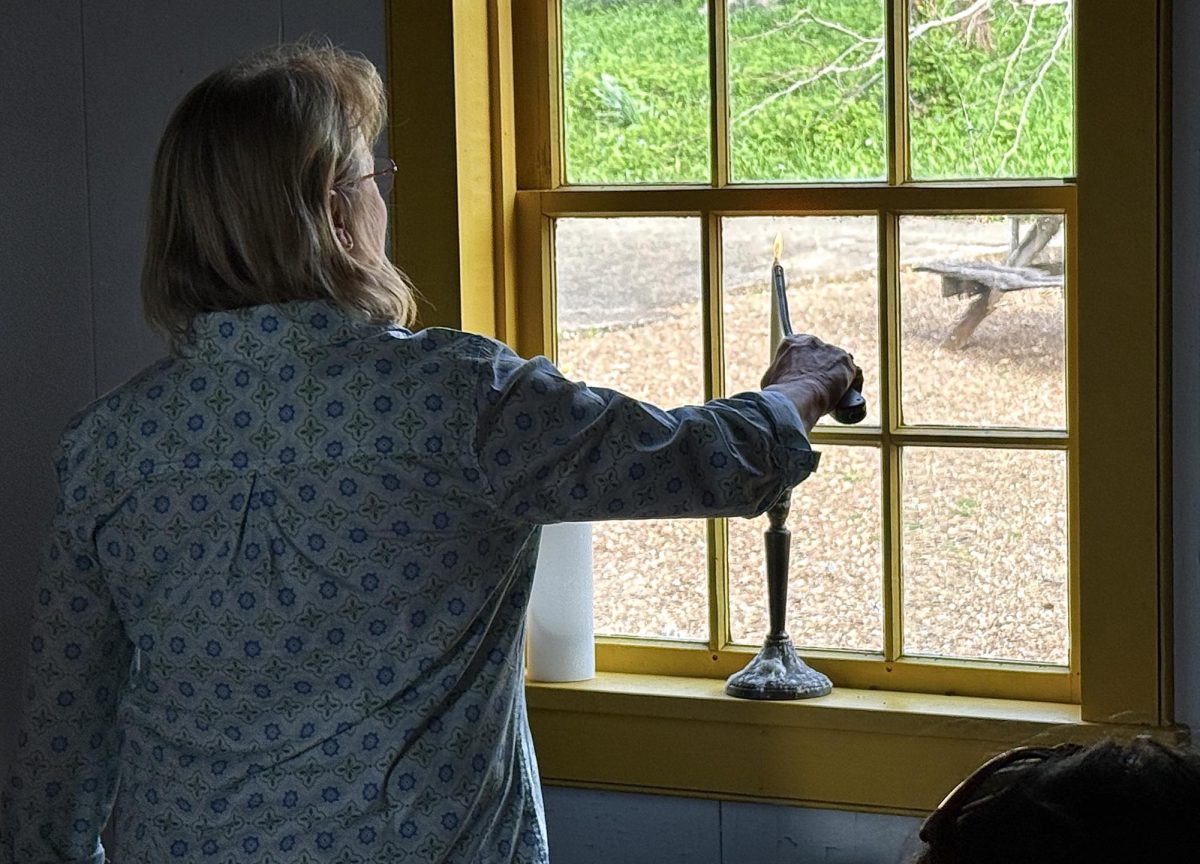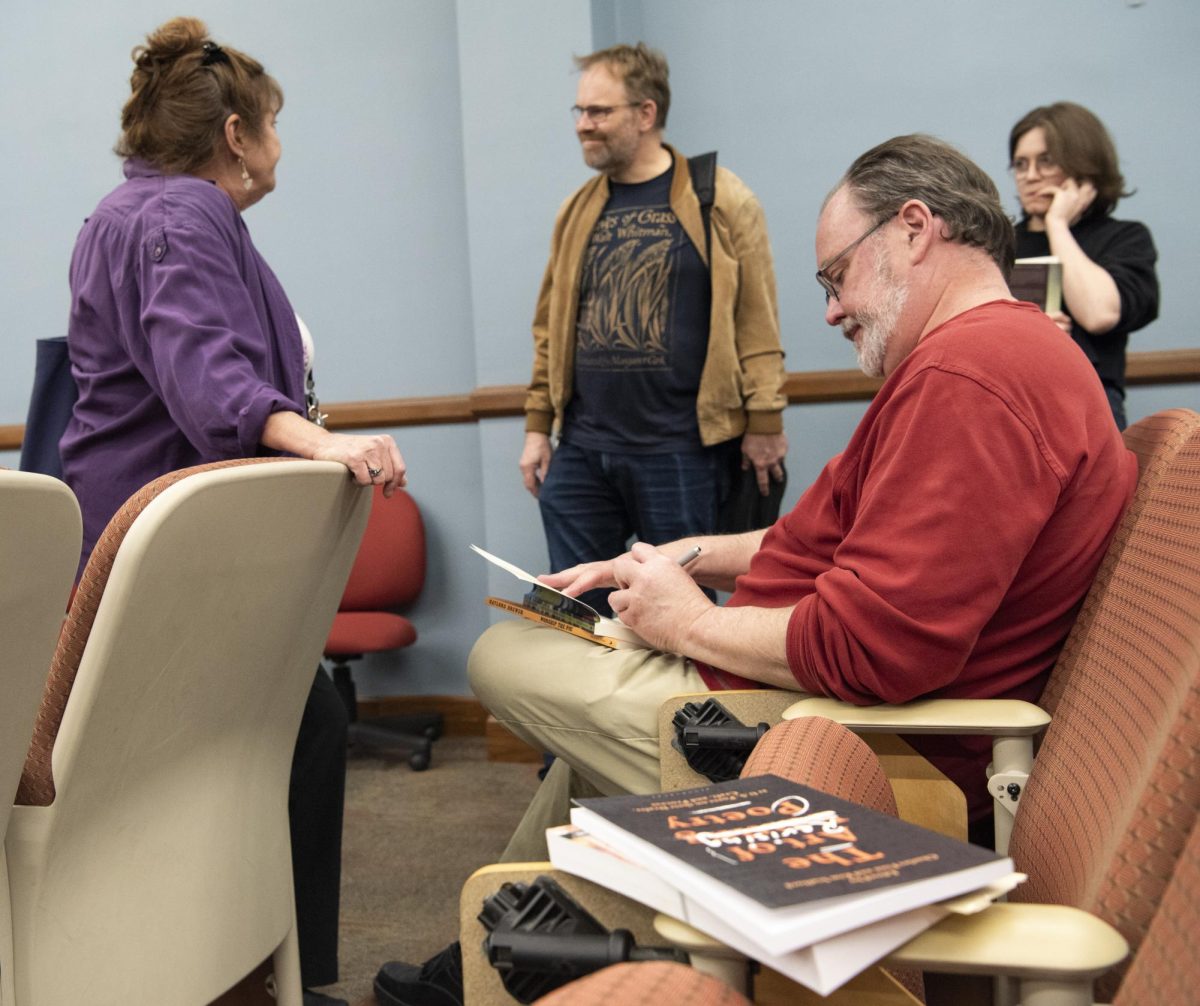Students voice opinions on weapons
September 17, 2015
Due to controversy surrounding gun rights and the Second Amendment, some students are weighing in on the culture surrounding guns in the nation and on campus.
From April 29 to May 27 in 2014, the Pew Research Center conducted an American Trends Panel survey of 3,243 adults, including 1,196 who said they or someone in their household owned a gun, pistol or rifle.
The American Trends Panel was created by the Pew Research Center and is “a nationally representative panel of randomly selected U.S. adults living in households.”
According to the information from the 2014 ATP, 26 percent of people ages 18-29 said they had a gun, rifle or pistol in their home. Additionally, the survey found that the South, including Kentucky, reported 38 percent of households with a gun in the home.
Ashland senior Gregory Wellman is part of that 38 percent. Not only does he own a gun in his home, he also hails from a family where that is the norm.
Wellman said while he was growing up, his entire family owned a gun. He said he was around 5 or 6 years old when he shot his first gun and that growing up in this sort of environment shaped his perspective on guns.
Owensboro senior Alexa Lamar grew up in a family environment similar to Wellman’s.
Lamar said she would go on hunting trips with her father and considered buying a BB gun at a young age. She also said being exposed to guns as a child shaped her perspective.
“I never really saw them … in a negative way,” Lamar said. “I was desensitized to them just cause I was always around them.”
Despite sharing similar pasts of growing up in gun-owning households, the two share slightly different views on why they own guns and how they use them.
“Why Own a Gun? Protection Is Now Top Reason” is a 2013 survey conducted by the Pew Research Center from Feb. 13-18 among 1,504 adults. Asked why they own a gun, 48 percent of gun owners responded that they own one for protection.
The 2013 survey indicated that this was a 22 percent increase from August 1999 data from ABC and The Washington Post.
Hunting polled in at 32 percent, target/sport shooting at 7 percent and constitutional right/Second Amendment at 2 percent.
Wellman said he owns guns as a hobby, for protection and for hunting.
“I have handguns for protection, I have shotguns for sport, I do trap shooting, then I’ve got several deer rifles,” he said.
In contrast, Lamar said her main interest is recreation since she loves to go to the shooting range. However, she also said protection comes with owning a gun.
“It is nice to own one, in my opinion, in case you’re ever put into a situation where you may need to protect yourself,” she said.
Wellman echoed similar sentiments. He said he keeps his gun in the car with him all the time and has one in his home as well. He believes it’s a sensible precaution to have in today’s society.
“Rather have it, not need it than need it, not have it,” Wellman said.
Wellman said obtaining a gun in Kentucky is a fairly easy process. Apart from the legal requirement of being 21, he said going through a background check was the only hurdle he had to jump through and that it wasn’t “that big of a deal.”
While Wellman agrees with background checks, he believes making them stricter won’t help anybody and would just make it harder for law-abiding citizens to obtain guns.
“If you made it harder for people to get them, then the people that really wanted them for the wrong reasons would already have them; laws wouldn’t affect them,” he said.
Lamar said she also agrees with the implementation of background checks because she thinks it helps prevent those with a criminal background from obtaining guns but does not stop law-abiding citizens from obtaining them.
The public reported both positive and negative opinions concerning stricter gun laws in the 2013 Pew Research Center survey. 54 percent agreed stricter gun laws would reduce the number of deaths caused by mass shootings; however, 58 percent agreed that stricter gun laws would make it more difficult for people to protect their homes and families.
Additionally, 57 percent agreed stricter gun laws would give too much power to the government over average citizens.
Wellman and Lamar voiced concern about possible government overreach, such as the rights granted to U.S. citizens by the Second Amendment being taken away.
Lamar said she thinks our Second Amendment rights are “in the process” of being taken away and that it may happen in the near future, but she feels confident many would stand against it.
“You know the southern states — I think they’ll be the ones to put up the biggest fight against it,” Lamar said.
Wellman said he is leery of the government imposing stricter regulations on purchasing guns, but he also believes the threat of Second Amendment rights being taken away is not an issue we’re facing today. “I think it’s just hot air,” he said.
“Until they come and try and take the gun outta my hand, they’re not taking any rights away from me,” Wellman said.
Weldon and Lamar differed most on the campus weapon policy.
As outlined in university policy in the Student Code of Conduct, “possession, concealed or otherwise, use or storage of firearms, explosives, dangerous chemicals or other dangerous weapons or the brandishing of any weapon or any other object in a menacing or threatening manner is strictly prohibited on any property owned, leased, operated or controlled by Western Kentucky University, including University housing.”
Lamar likes the campus policy and said it makes her feel a little bit safer. In contrast, Wellman believes you should be able to conceal carry on campus if you have a permit.
“I know a few years ago I would get the WKU text alerts about weapons being on campus, and that always made me a little nervous, especially when I was new to the school,” Lamar said.
Wellman disagreed.
“Just because you’re in a classroom doesn’t mean that there’s not going to have a chance that you might need it,” Wellman said. “You have all these school shootings and stuff all the time.”













